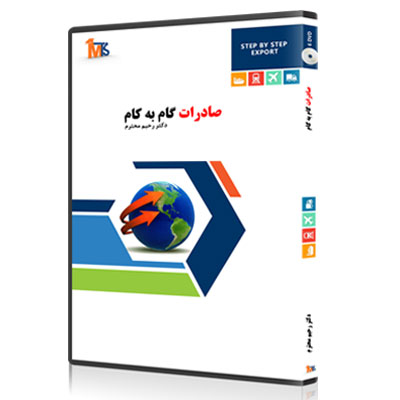Looking for ways to survive, recover any thrive again, businesses are doing everything they can to increase cashflow and efficiencies. But a recent U.S. Bank study by found 82% of businesses fail due to cash flow mismanagement.
When it comes to international businesses there is an increased layer of complexity and expenses to consider. To find out the most impactful ways businesses can reduce costs and keep cash flowing, FITT brought together experts in customs, shipping, international business strategy and import/export finance. We explored partnerships, product adaptation, customs issues and preventative measures, shipping methods pros and cons as well as funding options and other cost cutting strategies relevant to international businesses of all sizes.
Reducing customs and shipping costs is about more than just shopping around for the best prices
Rahim Mohtaram – Global Supply Chain and Purchasing Consultant, Smartech Investment Corp.

Rahim has been working in global supply chains for 15 years and has negotiated and executed more than 155 international contracts in sales, purchasing, agencies and distributors in 25 countries. He is also a CIFFA certified instructor and provides consultation on cost reduction strategies.
Where are importers, exporters losing money in international shipping right now?
Rahim:
Let’s look at our attitude about costs and price. I’ve seen many companies who are trying to decrease their costs by just decreasing the fees of customs brokers or transportation companies. A very important point which I always advise my customers to have in mind is that you have to think about the total landed cost, not just about the price that you are paying for services. In some situations, decreasing certain costs requires increasing some other costs in other fields. For example, if you pay a bit more to a professional transportation company for their freight, you may avoid many hidden costs.
Businesses are often surprised with hidden costs over the course of their supply chain. I expect my transportation company to clearly explain me what types of costs are included in their fees and what types of costs are not included. So we have to define the exclusions and inclusions. For example, sometimes I might give incorrect information to the transportation company about the weight and that might cause a very high fine such as, VGM, Verified Gross Mass. You should do the work to have a clear and comprehensive agreement with the transportation company and customs brokerage companies you work with.
I have a tip for small businesses: pay attention to abbreviations! When you see in your contract or in your quotation, the abbreviation, for example my price is $1,000 FIOST. FIOST means Free In Out Stowed and Trimmed. This has a technical meaning. And if you do not understand the meaning of this, it means that you will be surprised when you will receive your invoice. So, whenever you see something that you do not understand, ask for a clear definition.
Are there any other cost-saving logistics strategies that you’re seeing businesses employing right now during a time of disruption?
Rahim:
I think when we talk about costs, it’s not good to just talk about financial costs. We have to pay attention to some costs which are related to time and to headaches. Instead of just decreasing the financial costs, I suggest companies keep more inventory, because your credibility is more important than $1,000 or $2,000. Try to have some alternatives from local suppliers instead of buying 100% of your products from overseas.
Also ensure the optimum usage of weight and volume in air transport and road transport. We have to make the best of the space that we have. Along with that, ensure you are using the most suitable packaging for your product and your mode of transport. One of the best ways to do this is to have close relationship with your partners and suppliers and always look at ways of decreasing the costs together. Because we are a part of the same competition unit. Nowadays experts say that companies do not compete with each other, supply chains are competing with each other. So we have to find solutions along with our suppliers and with customers, and we have to work together to find the best solutions. Engage with customs brokers as early as you can because the rules are changing fast and you need the updated information.
Content Original:
مطالب مشابه:
------------------------------------------------------------
تاثیر کوید 19 بر تجارت بین الملل
------------------------------------------------------------
 ویدئوهای بیشتر ببینید.
ویدئوهای بیشتر ببینید.  09031142938
09031142938
محصول پیشنهادی با این مطلب:


 بسته آموزش صادرات گام به گام
بسته آموزش صادرات گام به گام
دیدگاه ها